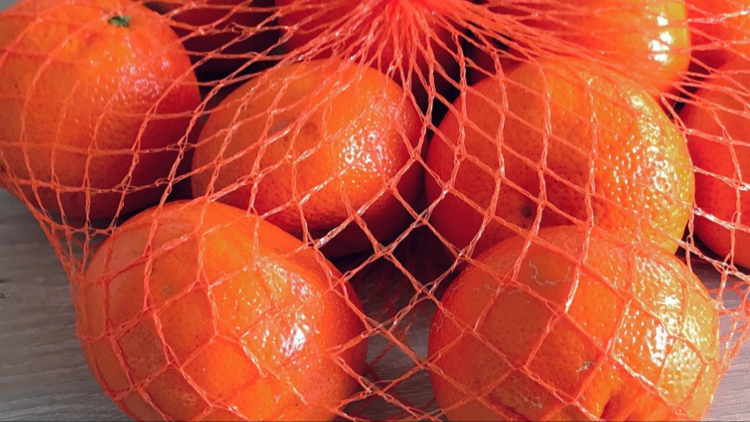While it’s likely easier for vegans to find food that suits their purposes than it used to be, the unfortunate truth is that it’s just as easy for options that seem right to be misleading in surprising ways.
Most of the time, this happens because plant-based fast food products are sometimes tough for workers to distinguish from their meatier alternatives. But it’s also possible for the packaging and placement of an item to make it appear meat-free when it isn’t or for products that would otherwise be vegan to be cooked in animal fat.
But while all of these examples describe human errors made while serving or selling these products to vegans, one woman recently discovered that other disqualifying factors are baked into the products themselves.
So although it may be counter-intuitive for oranges and other fruits not to be vegan, her story shows that it’s not as unlikely as you might expect.
While shopping for fruit at the U.K. supermarket Tesco, a vegan woman recently learned that the simple act of buying some oranges would be harder than she thought.

And we can see the reason for that in this product description that notes some of the oranges sold there aren’t suitable for vegans.
As Nottinghamshire Live reported , that seemed to be the case for her no matter how many varieties of oranges she pored over.
In her words, “I am shocked to find out that the oranges I was trying to buy all day are not vegan. Pfft.”
And it’s not just Tesco with surprisingly non-vegan produce, as the outlet found the same was true for fruit sold in competing chains.

Her experience and the subtle ubiquity of non-vegan fruits drew stunned and disappointed reactions online, with one commenter saying , “When fruit isn’t suitable for Vegans you know something bad is happening.”
Naturally, this information would lead us to wonder how it’s even possible for oranges not to be vegan and the answer has a lot to do with how they’re grown.

According to MyLondon , one of the pesticides that’s often used while growing fruit is an anti-fungal chemical known as Imazalil. And if a particular version of this chemical known as E904 appears on a given product’s label, that means that product isn’t vegan.
That’s because it’s made from shellac , a resin excreted by female “lac” bugs that clumps into tubes like the ones we see here.
You might have noticed how shiny certain fruits can seem at the supermarket and this is often due to another additive that makes them non-vegan.

When the wax coating a fruit’s peel isn’t made from Imazalil E904, there’s a chance that it’s made from beeswax instead.
Of course, vegans aren’t a monolithic group and vary to which degree they’re going to avoid materials derived from insects. But for those who abstain from consuming any animal products whatsoever, it’ll either take an organic option or some careful study of product labels to meet their nutritional needs.
h/t: MyLondon

We want to hear from YOU so we can serve you better. Complete this quick survey and you will be entered to win a grand prize of $2,000, or a chance to win one of 10 Diply prize-packs!

















































